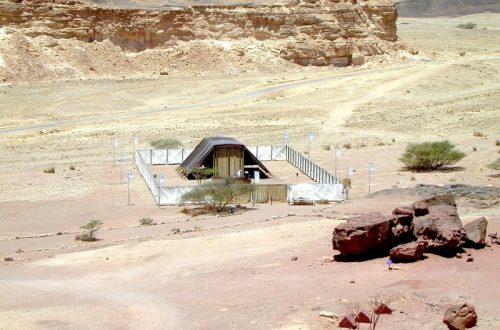Good News – Luke 14
Parables of Luke 14
Throughout the chapter Jesus speaks in parables. In the first parable (vv 1-6) Jesus questions the religious leaders about doing good deeds on the Sabbath. The parable of the wedding feast (vv 7-11) is the first of two that use different feast scenarios to illustrate heaven. In this one Jesus shows the importance of humility. The parable of the great banquet (vv 12-24) is really two parables in one. First Jesus says plainly why we should do good deeds that cannot be repaid by friends and family. In the second part he indicates that entry to heaven requires a person choose to be there, but also that the person can’t sneak or buy their way in.
Parables of Luke 14
Throughout the chapter Jesus speaks in parables. In the first parable (vv 1-6) Jesus questions the religious leaders about doing good deeds on the Sabbath. The parable of the wedding feast (vv 7-11) is the first of two that use different feast scenarios to illustrate heaven. In this one Jesus shows the importance of humility. The parable of the great banquet (vv 12-24) is really two parables in one. First Jesus says plainly why we should do good deeds that cannot be repaid by friends and family. In the second part he indicates that entry to heaven requires a person choose to be there, but also that the person can’t sneak or buy their way in.
In Luke 14:25-33 Jesus gives sound advice. He essentially says you need to make an informed decision about faith. Don’t take things for granted. Look at your choices and decide for yourself. Jesus doesn’t want a person to make a decision to follow him on a whim. There’s a price and you need to know what it is before you agree to sign up for the discipleship program. The last parable, salt that’s lost its saltiness (vv 34-35), rounds out the chapter with what sounds like an ominous warning not to fall away from your faith once you choose to believe. First I asked the Lord which part of this chapter to share. It all had potential, but nothing seemed like an obvious choice for telling the Good News. Then I felt prompted to begin at the end of the chapter.
Salt of the Earth
Luke 14: 34-35 “Salt is good, but if salt has lost its taste, how shall its saltiness be restored? It is of no use either for the soil or for the manure pile. It is thrown away. He who has ears to hear, let him hear.” We have all heard the expression “salt of the earth.” This usually refers to a very good and humble person; the sort of average Joe who works hard but would give you the shirt from his back. Jesus said “Salt is good.” I think this is why we use that expression as a compliment. Salt is a mineral. It has many uses. It is used to provide flavor, to dry and preserve meat, and in the days of the Roman Empire it was even used as currency to pay soldiers’ wages. If salt looses its taste, that can only mean its chemical properties are depleted. Truly it is of no value at that point. It won’t even dry manure or provide nutrients to soil. Jesus spoke a simple and obvious truth when he said this.
Salt of the Kingdom
Jn 3:7 Do not marvel that I said to you, ‘You must be born again.’ When Jesus spoke the parable of salt he certainly wasn’t giving a geology lesson. He was speaking in the context of the previous parables about the price of discipleship and the nature of heaven. Good salt represents the spiritually regenerated (born again) believer. Something the Spirit has revealed to me is that being born again doesn’t mean you can pray the sinner’s prayer and you’re all set. That is a necessary start, but it isn’t the whole enchilada. Being born again implies the start to a whole new life. That life needs nurturing as it develops from the simple babe to the spiritually mature. The decision a person makes to follow Jesus has a cost. The price is only accepted when paid in good faith. This is what Jesus was getting at in Luke 14:25-33.
Loosing Saltiness
Luke 14:16-18a, 23-24 But he said to him, “A man once gave a great banquet and invited many. And at the time for the banquet he sent his servant to say to those who had been invited, ‘Come, for everything is now ready.’ But they all alike began to make excuses. … And the master said to the servant, ‘Go out to the highways and hedges and compel people to come in, that my house may be filled. For I tell you, none of those men who were invited shall taste my banquet.’ Many of the people invited to the grand banquet made excuses not to come. These are the ones about whom Jesus said they shall not taste his banquet. These are people who were called. They represent anyone who gives Jesus only lip service. They may pray the sinner’s prayer, but don’t live a new life. They may start out in a new life, but somewhere they turn their back on the Lord. The parable of the sower (Mt 13:1-9) is perhaps the best key to unlock what I’m trying to say. Just as some seeds won’t grow to fruit baring status for various reasons, some salt will loose its saltiness.
How Shall the Saltiness Be Restored?
Luke 1:37 For nothing will be impossible with God. Mary questioned the Angel and this was the answer. Jesus asked how saltiness can be restored. With natural salt there is no known process to restore the chemistry of natural salt. It is impossible for man to accomplish, but not for God. It is not too late until He says it is too late. The invitation remains. It isn’t until the feast is served (when our time comes) that we must be ready. Not that we should slough off, but I’m saying we can come back no matter how unredeemable we feel. It is harder to return than it is to stay. When we sin our carnal flesh makes it difficult to surrender what it likes. That’s why sometimes sheep gone astray try so hard to remain hidden from the Good Shepherd.
Good News of the Salt
If you’ve asked Jesus to be Lord of your life, but for whatever reason you aren’t living in submission to his will, don’t believe the lie that you can’t find redemption. It isn’t easy. There is a price. We must all give an account for our deeds, both good and bad. That said, love covers a multitude of sins. The blood of Jesus can wash purer than snow any stain in your life. Come to the feast when you are called. Don’t think you can buy your way in or sneak in (cp Mt 22). Humble yourself to accept the free invitation as a stranger out on the highway and don’t snobbishly have better things to do. There is nothing better to do. Excuses aren’t good enough. Jesus bids us to come and dine, but the choice is yours. Choose today who you will serve. When you become salty, hold onto your flavor. It is much harder to get it back if you let it go. All things are possible, but only with God.


